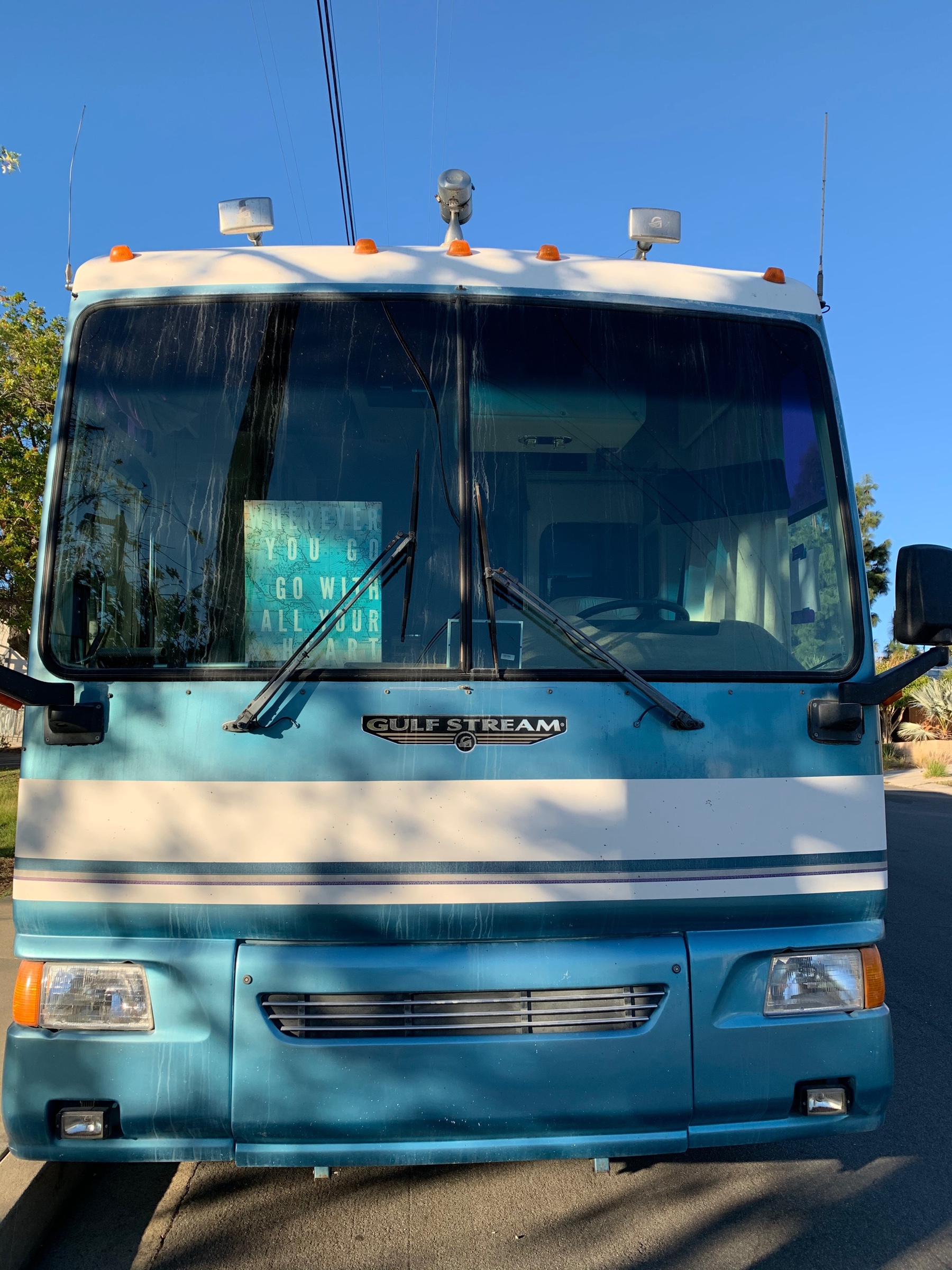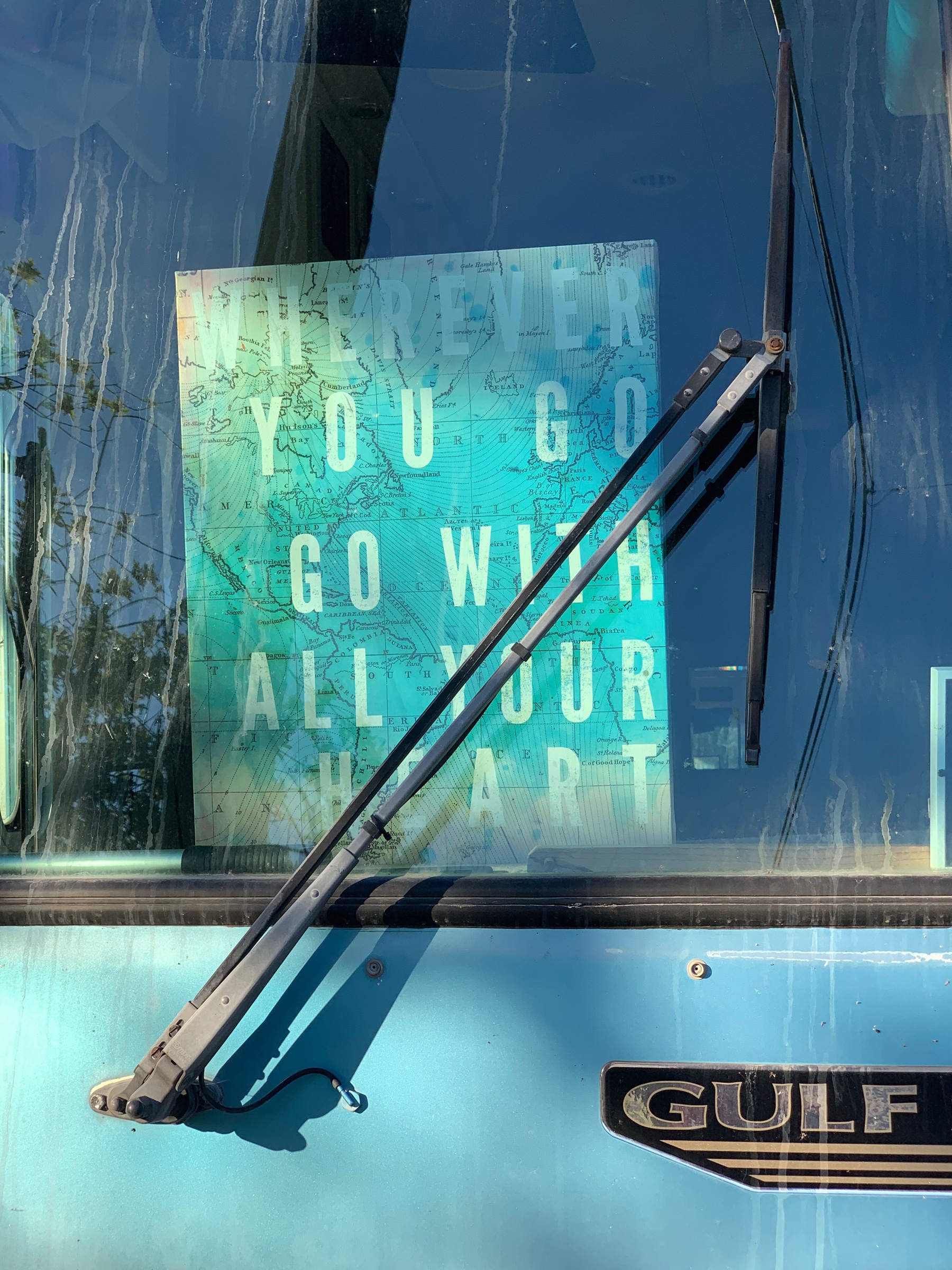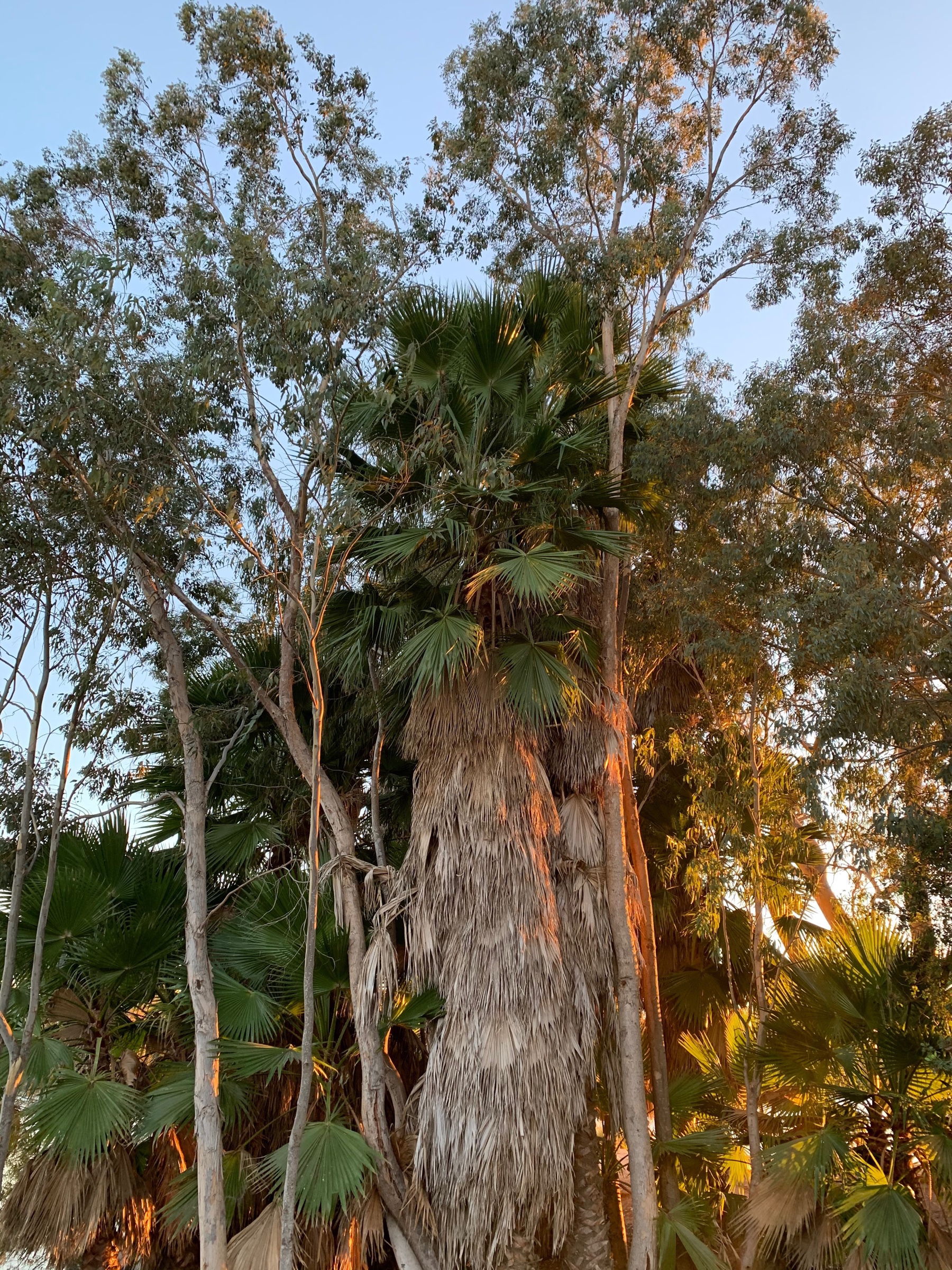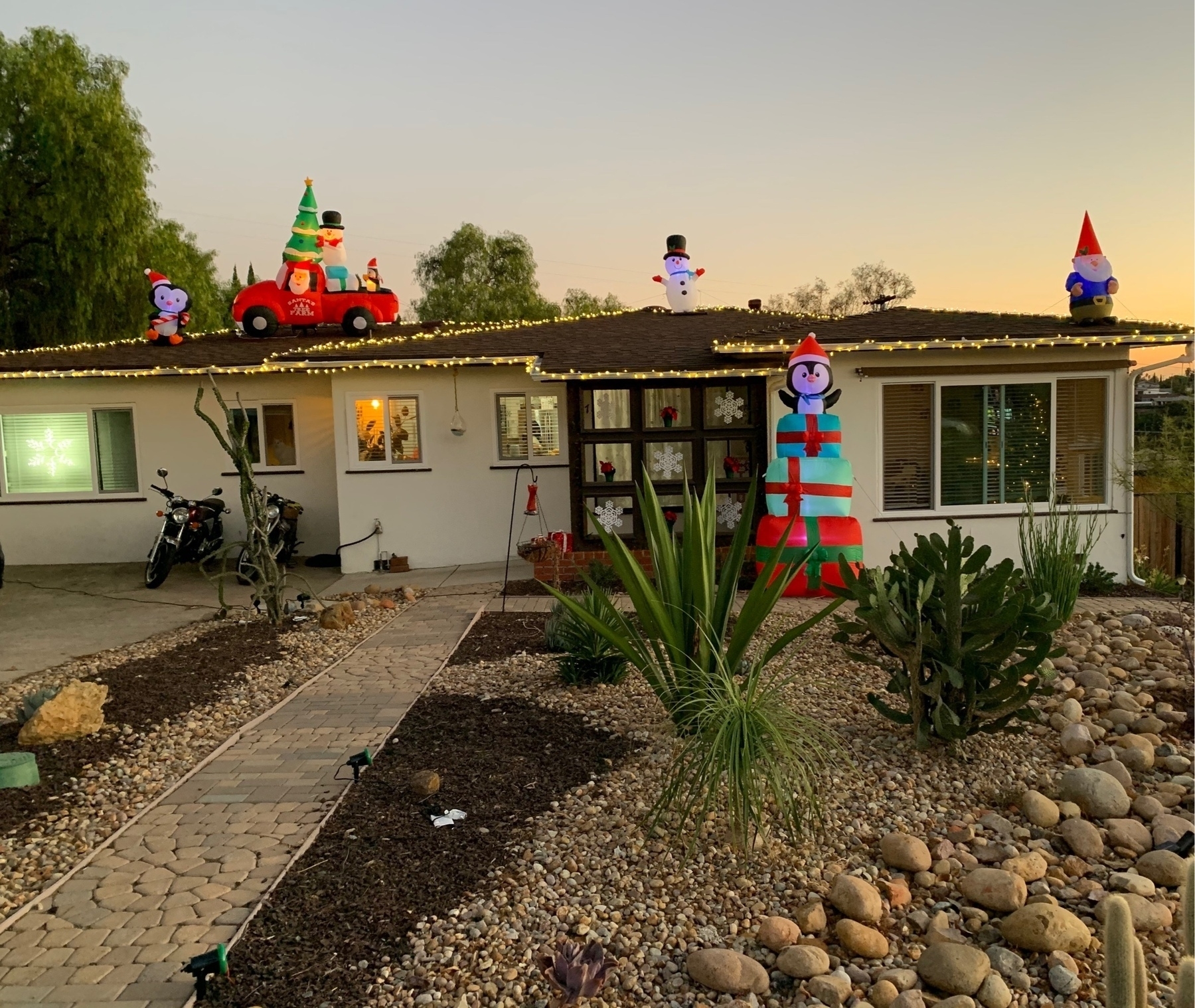June 2019 Our final Africa safari stop was Little Kulala Desert Lodge, in Sossusvlei, the Namib-Naukluft Park, Namibia. We took another small charter flight, from Hoanib Valley Camp – or, rather the nearest airstrip from that camp, which was about two hours’s drive away from the camp itself. Sossusvlei Geluk Airstrip is the usual empty airstrip, just a cleared length of land with one or two sheds. As at our other camps, one of the staff picked us up in a Toyota truck converted for passengers, enclosed but not air conditioned. The weather was another scorcher of a day with bright sunlight, even though it is the African winter. We were accompanied by the pilot of the plane, Graham, who was staying at the lodge overnight. About 15 minutes in, Graham conversed with the driver of the truck, Alfred, in Afrikaans, and then Alfred turned the truck around. Graham confessed that he was supposed to start a beacon on the plane to let his company know he’d arrived safely, and he’d forgotten to do that. When we returned to the airfield, Graham did that thing and then we turned the truck around back toward the camp.
I have to confess, we were road-weary at that point and ready to come home, but we still had four more nights in Africa ahead of us plus 28 hours on planes and in airports. And now as I write this a week after our return, I miss being in Africa.
There were only two things you could do in Sossusvlei that appealed to us: Seeing and climbing the majestic dunes, and visiting the Seasrim Canyon. That’s meant a two-night stay would have been ideal; we stayed for three and so we had some time on our hands. And because of the heat, Kulala Desert Lodge was not the ideal place to sit around and rest. There are other things to do in the area, but they did not appeal to us: Ride e-bikes and fat bikes, or go on a wine tasting. You can also take a balloon ride, but that would have cost $1,000, which seemed like a lot for a short experience. I’ve ridden on hot air balloons twice, once with Julie, it’s wonderful but we weren’t interested this time around.
Aside: I wrote all my other journal entries in Africa, with unreliable or no Internet access. Now I’m home with our lovely, home WiFi. And I can just look things up if I don’t know what they are. The name of the lodge we stayed at? The name of the canyon? Pow! Type in a few characters in a browser and there’s your answer. [Update from 2020: I wrote this journal entry in July 2019, a few weeks after returning home, based on notes on the trip.]
The lodge is laid out similarly to the other places we stayed, with a main building in the center, done up like a giant hut, containing the dining room, bar, outdoor seating, and offices and reception desk. The entrance is in front of that building. Spread out on either side were 23 cabins for guests, which are actually big, furnished canvas tents on platforms, as with Xakanaxa and other places we stayed. The lodge calls the cabins “kulalas,” from an African word for sleep. Because of the number of cabins, service was more hotel-like and impersonal; we enjoyed the family feeling at the smaller lodges we stayed at, such as Xakanaxa and Hoanib Valley, and liked Kulala Lodge less.
The dining room has big plate glass windows overlooking the flat desert plain, which seems to stretch off for miles to the distant mountains. We’d been to several African deserts by then, as well as the Anza-Borrego Desert at home, and each one seemed more austere and barren than the last. The shrubs at Sossusvlei are sparse and many tens of yards apart. There are few other animals there, just some birds and lonely impala and kudu.
The big draw at Sossusvlei, though, are the dunes. They are just piles of loose sand, hundreds of feet high and miles long, marching across the desert. One of the highlights of the visit is climbing one of the biggest dunes, called “Big Daddy.” 130 meters high. It’s strenuous, like walking on the beach but also climbing. The sand fights you on every step. And you’re standing on a relatively narrow path, with a steep slope on either side. The path is wide enough that I was only worried a little bit about falling. I was worried a little more about just getting down. I’d been assured by both tourists and guides that getting down is easy and fun, but I was skeptical; I have a lousy sense of balance and anything involving anything like climbing is tricky for me.
Climbing up the dune you have a long string of hikers both in front of and behind you. It isn’t crowded, but if you’re like me and you move slowly, you’ll be passed a couple of times. Like I said, it’s not crowded, but I got to thinking about the famous photos of climbers lined up to ascend to the summit of Mount Everest, like people waiting to get on a bus.
Despite the crowds, tourism isn’t a problem for the dunes, because every night the wind blows and cleans up the footsteps and repairs the damage. The dunes are like new every morning. That’s the theory at least.
I got about two thirds of the way up the dune and decided I had gone far enough. I wasn’t tired, but I’d spent enough time on the climb and didn’t have anything to prove. Also, I didn’t want to keep the other people on our bus waiting. So I turned to my right and went down the steep slope.
And it really was fun going down. I fell twice, but backwards, on my butt, and the sand is so soft it didn’t hurt a bit and I just popped back up. Both my feet were sunk in sand halfway up to my knees, so walking was more like wading and slow going. After I got about two thirds of the way down, I found a rhythm and the rest of the way down was like gliding slowly. Delightful!
We don’t intend to return to Sossusvlei – we feel like we’ve seen and done everything we want to there – but if we somehow do find our way back I want to do that climb again, and this time go all the way up to the summit and do the walk down properly.
In addition to Big Daddy, the attraction next to the dune is Deadvlei, a white clay pan that’s so dry that nothing lives there. Some trees are still standing, 800 years after they died. We were instructed not to touch the trees, lest they shattered.
After lunch, we decided to skip the afternoon activities, and just sat around the cabin in the heat.
The next morning, we were up early, and off to the Seasrim Canyon, which is about 100 feet deep and the third biggest canyon in the world.
We had the guide to ourselves that morning – and the entire canyon, too. Our guide said most people do the dunes in the morning and the canyon in the afternoon, when it can be excuse-me-pardon-me crowded. But we did not see another soul on the climb down and nearly the whole climb up, with just a lot of magnificent geology to ourselves. By that time we were overwhelmed by magnificent nature and a little burned out on it, but we still had enough awe left in our souls to be stirred, at least a little bit.
In the afternoon I began to get cabin fever, and decided to go for a walk along the dry riverbed that the lodge is built alongside of. It was perfectly safe, and a lodge-approved activity. I walk for exercise in a park at home, and this was similar, only dryer, and hotter, and instead of being accompanied by our dog, I had a fly following me much of the way and trying to land on my face. Festus, our guide previously, said flies there don’t bite; they’re trying to drink water from our faces. That must have been one thirsty fly. Along the route, I realize I did not have any solo selfies from the trip, which is like a violation of international law, so I took a couple. The fly photobombed one of them, landing on my face. A flyless African selfie from that afternoon is now my default online profile pic.
The next morning, we began the long journey home, which took two or three days. The nine-hour time difference and 28+ hour flight time from Johannesburg to San Diego make it confusing as to how much time has actually elapsed. The first step was back to the airfield, where we waited a half-hour in the truck for the “ground pilot” – the airfield’s one employee - to show up and open the gate. We didn’t mind; by then we were used to how things are done in Africa. Prior to our trip, I’d talked to a colleague who’d lived six months in South Africa; she said be prepared for things that should be easy to be difficult, and things you’d expect to be difficult to be easy. That stuck with me in incidents such as the wait for the ground pilot to show up. The plane wasn’t going anywhere; we were the only passengers.
We flew a bit more than an hour to the Windhoek Airport, and were met at the gate by our old pal Antone, who had driven us from Windhoek to Okonjima a week or so earlier. He waited with us to check in, poor bastard – there was a very long line and he had somewhere else to be.
The flight to Johannesburg was a commercial flight, and getting on the plane was the end of our safari adventures, because one-hour commercial flight in Africa is not too different from one in the US or Europe.
We arrived in Johannesburg, breezed through customs, and checked into the City Lodge. We were scheduled to get up the next morning for an 8 am private, guided city tour, but neither of us were excited for that. When we’d had Internet access, I’d checked Yelp and TripAdvisor and Google for things to do in Johannesburg and didn’t come up with much of anything. The Apartheid Museum got rave reviews, but it sounded depressing to me. I wanted to see Soweto, which had been the only place Blacks were allowed to live during apartheid, but Julie wasn’t enthusiastic about that. So we put off the tour until 10:30 am so we could pack at leisure.
The driver picked us up in a town car with leather seats, a far cry from the open, battered trucks we’d been bouncing around in for weeks. He had an encyclopedic knowledge of South Africa, Johannesburg, and its history. The one other place we wanted to see, other than Soweto, was Maboneng, which travel guides billed as a bohemian shopping district.
The driver, whose name was Seabo, offered to take us to Soweto in the morning and then to a native African place for lunch. I said hell yeah, because I was always on the lookout for native foods – nearly all the foods we’d eaten on this trip were European, although nearly all of it was delicious – but Julie said no. I thought for a moment and realized that it was not a great idea to sample street food in an unknown cuisine a few hours prior to getting on a plane for a 28-hour flight. So I passed too. Instead, we went to Maboneng, and Seabo dropped us off for lunch and a bit of walking round.
Maboneng was disappointing. It was crowded and a little threatening, like much of the rest of Johannesburg we’d seen, with a few cheap-looking shops and stands set up selling crafts that looked no different than the kind of thing you’d find at the airport. There were also a few Ethiopian and other African restaurants and a coffee cafe, which would have been tempting to me on another day, but like I said I didn’t want to try any strange cuisines just before a long flight. So we ate at an Italian restaurant/sports bar that was actually very good, and friendly. When we got out the neighborhood looked friendlier too; I even spotted one man who looked local, dangling a big camera from his hand. People don’t dangle big cameras in a dangerous neighborhood. Not for long at least.
Seabo returned shortly after lunch and took us to Soweto.
Soweto, he explained, is home to 1.2 million people, which makes it a respectable city within the city. It has neighborhoods of great poverty – shantytowns and slums made of scrap metal – which, Seabo noted, are all that you see in photos and video of Soweto. There are also middle class homes, and even affluent residences. Even the affluent residences seemed cheek-by-jowl close to each other, and small to me, though Julie said she thought some of them were larger. They had high fences around them, suggesting a high crime rate. And you’d see poverty and affluence very close – a shed or just open air tables selling a hodgepodge of merchandise, just a few steps from a scavenged home. Hand-painted advertisements adorned walls, touting businesses; I noted a lot of building contractors. Businesses mingled with housing. If there were any zoning laws in Soweto, I didn’t see evidence of it.
I saw livestock grazing in empty lots, cattle and goats. In the middle of the city!
Seabo lived in Soweto; he seemed to like it.
Seabo offered to stop to let us out at Nelson Mandela’s and Desmond Tutu’s homes, he seemed disappointed when we didn’t get out. But that street was dense with panhandlers, buskers, and other street people, who seemed aggressive; not violent, but not inclined to take no for an answer. Julie and I were not in the mood to run that kind of gauntlet.
We arrived back at the hotel at 3:30 pm, said goodbye to Seabo – who really was a good guide; we were just bad tourists – and made our way to airline check-in.
All in all I was not impressed with Johannesburg. It seemed to me the kind of place you’d only ever go to if you for financial reasons. Maybe, like Seabo, you were a poor villager looking to make a living. Maybe you’re a millionaire looking to be a billionaire. Or maybe you’re just somebody in the middle.
And then we were on our way home. I barely slept on the 28+-hour flights, watched something like five movies, two seasons of The Good Place, then slept most of the next 24 hours when we arrived home. Several days later I drove a car for the first time in a month; I did not hit anyone or go off the road.
We talk a lot about going back. We went to Africa really on a whim; it felt like a fun adventure. And it was, and we’ve fallen in love with it. Maybe in three years, if we can afford it financially. I’d like to see gorillas and chimpanzees, visit the Olduvai Gorge where the first people on Earth lived millions of years ago, see Cape Town, spend a day each in Windhoek and Swakopmund, spend more time in Botswana, get Festus to guide us around. Africa is a big, beautiful continent with so much to do! 🌍📓




























